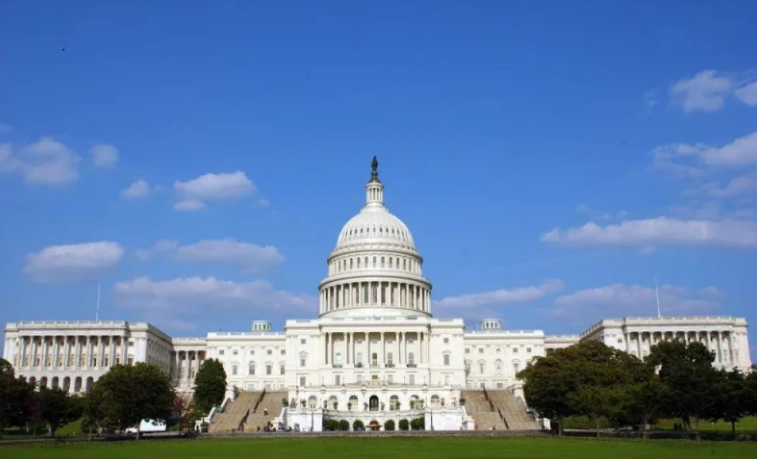In a narrow vote, Senate Republicans on Wednesday blocked a Democratic measure aimed at limiting former President Donald Trump’s ability to impose sweeping tariffs, delivering a modest but symbolic win for the former president amid ongoing economic concerns.
The vote followed weeks of political wrangling on Capitol Hill, as Democrats sought to rein in Trump’s unilateral trade powers following his abrupt announcement on April 2 of new tariffs affecting nearly all U.S. trade partners. The announcement sent shockwaves through financial markets, prompting a sharp sell-off and a swift reversal from the former president, who delayed implementation of the tariffs by 90 days.
While the suspension offered temporary relief, uncertainty continues to cloud the economic outlook. On the same day as the Senate vote, the Department of Commerce reported that the U.S. economy shrank by 0.3% in the first quarter of the year—the first quarterly contraction in three years—raising fresh concerns among businesses and consumers.
The Democratic proposal was seen as an effort to reassert congressional authority over trade policy, which has traditionally been shared between the legislative and executive branches. “Our goal is to ensure that the powers of Congress are respected and that decisions with major economic implications are not made unilaterally,” said a Senate Democratic aide following the vote.
The failed measure follows a previous Senate vote weeks earlier, in which lawmakers approved a narrower restriction on Trump’s ability to levy tariffs against Canada. That resolution passed by a slim 51-48 margin, with support from four Republican senators.
This time, however, most Republicans closed ranks, expressing reluctance to curtail the president’s authority on trade during a volatile period for the global economy. The result underscores the continued tension between the executive branch’s broad trade powers and congressional oversight.
While the vote did not succeed, Democrats framed it as an important political moment. “This was about getting members of Congress on the record,” said a Democratic strategist. “Americans deserve to know where their representatives stand when it comes to decisions that directly affect jobs, prices, and economic stability.”
As the 90-day tariff suspension continues, lawmakers on both sides face growing pressure to address the broader implications of executive-led trade policy—and whether further congressional action is needed.


